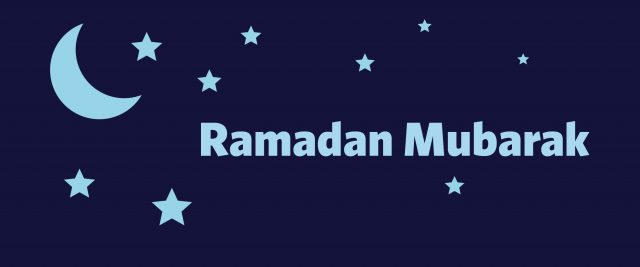
What is Ramadan?
The sighting of the crescent moon marks the beginning of Ramadan, the ninth month of the Islamic lunar calendar. Ramadan, a month of fasting, is observed by around 2 billion Muslims all over the world. During the month of Ramadan, most Muslims refrain from food and drink, smoking, and sexual activity from dawn to sunset.
Yet, Ramadan is more than simply an exercise in physical discipline. It is a month of introspection and reflection as well as a time to limit bodily needs and focus on spirituality. Many Muslims take this time to recite and study their holy book, the Quran, which, many believe, was revealed to Prophet Muhammad during this time.
Ramadan is also a time for Muslims to remind themselves of the importance of building community. Families and friends get together for daily meals or exchange food with neighbours to break the fast at sunset. Many Muslims also reach out to less well-off members of their communities by paying the Zakat (an obligatory payment made by those with means in support of charitable purposes) or by sharing food staples and groceries with people in need.
What happens at the end of Ramadan?
The end of the month is marked by the sighting of the new moon and Eid-al-Fitr is celebrated on the first three days of the next month. Common greetings to mark this occasion include “Eid Mubarak”, meaning “Blessed Eid”, or “Eid Sa’id”, meaning “Happy Eid”. This is a holiday for Muslims to get together with family and friends, and may involve children receiving pocket money.
What should one know?
- Not even water? Yes, Muslims can’t even have water during the fast. But, no, you don’t have to be “sorry”.
- Ramadan holds greater significance for Muslims than only refraining from drinking and eating. Some Muslims may not be able to fast (e.g. due to health reasons) – or choose not to – but might still be reflective on other aspects of the month. Try learning what the month means for different Muslims around you.
- Feel free to eat in front of Muslims without being apologetic. To be more inclusive, try not to schedule events during the day that focus on food, such as work lunches or happy hour mixers. If your Muslim coworkers or friends opt not to attend such events, it is understandable.
- You are welcome to join Muslim friends and colleagues for Iftar (breaking the fast). Joining in the communal meal is a great way to learn about and partake in Ramadan festivities. But remember, some may need to leave for Taraweeh, a long prayer held right after Isha’ (the last prayer of the day) during Ramadan so don’t overstay your welcome.
- Be flexible about work and time-off schedules for your Muslim colleagues as it is hard to know the exact dates for Ramadan and Eid ahead of time. Since Ramadan is determined by the lunar calendar, the dates vary every year. If your friends or coworkers need to be a little more flexible once Ramadan begins, try to be as accommodating as possible. It’s no caffeine time for some coffee addicts, so the those early morning meetings can be tough!
- If you know Muslims who observe Ramadan, extend greetings by saying “Ramadan/Ramzan Mubarak” or “Ramadan Kareem”. Your friends and colleagues will appreciate your thoughtfulness.